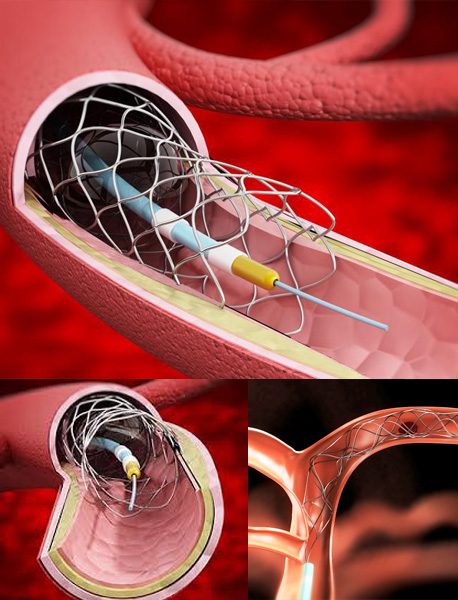
Interventional Cardiology
Interventional cardiology deals specifically with the catheter-based treatment of heart diseases. Interventional cardiologists are board-certified cardiologists who perform interventional cardiology procedures, most often in a cardiac catheterization lab at a hospital.
The majority of interventional cardiology procedures are performed in the cardiovascular (heart, veins and arteries) system. Most interventional cardiology procedures are considered to be minimally invasive because they do not require an instrument to enter the body or large incisions - most incisions are approximately 1 inch. These procedures usually involve the insertion of a catheter (hollow tube) into the femoral artery in the upper leg. The catheter is guided toward the heart or vascular area through the use of real-time X-ray.
Some of the advantages of minimally invasive interventional cardiology are decreased pain, less risk of infection, avoidance of large scars and shorter postoperative recovery times. In many instances, patients are awake during the procedure, requiring only a local anesthetic. Additionally, many procedures are performed on an outpatient basis, allowing patients to go home within hours of the procedure.
